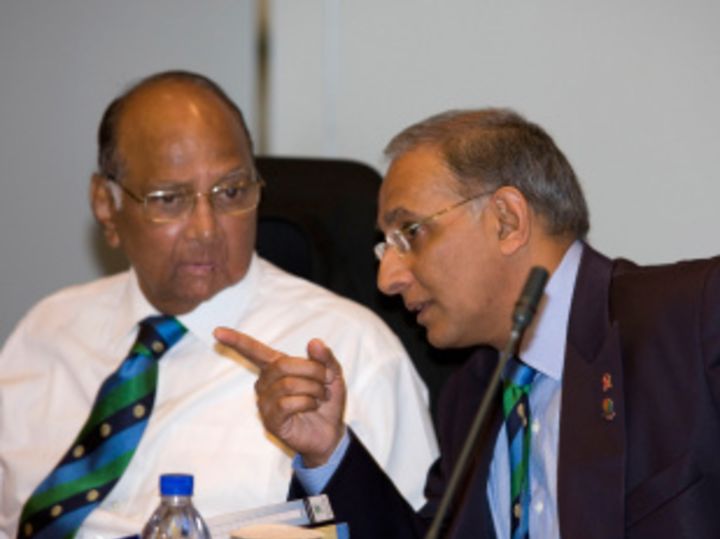Cricket and the Goldilocks Principle: The Question of Governance
I finished reading two excellent books over the weekend: Gideon Haigh's latest, Sphere of Influence , and David Post's Jefferson's Moose: Notes on the States of Cyberspace

I finished reading two excellent books over the weekend: Gideon Haigh's latest, Sphere of Influence, and David Post's Jefferson's Moose: Notes on the States of Cyberspace. The former is an Australian cricket writer, the game's master historian; the latter, an American professor of law at Temple University. The first book is about the current state of cricket; the latter, about Internet regulation. One concept the two books have in common, and indeed, are obsessed about, is "governance."
Post's analysis centers around the dualism of the Jeffersonian vs Hamiltonian models of governance for the Internet: should regulation flow from a strong, centralized authority or from decentralized, autonomous groups evolving modes and methods of co-operation and power-sharing? The success of the Internet seems to be explainable in terms of the latter, while worries about the loss of its unique "nature" seem to be centered around the fear that the former model will come to predominate.
Haigh is concerned about the game's governance: its present and its future prospects (readers familiar with his Cricinfo columns will know what he is up to in this dazzlingly written book). The picture painted is often a grim one, despite the fact that the ICC-national board structure seems to possess some of the features of the Jeffersonian model so beloved of Post. There is no strong centralized authority despite the presence of the ICC; the true power seems to lie in the hands of the various national boards. Calls for the ICC to "do something, anything, about X", where X happens to be the latest crisis riling the minds of players and fans alike, are inevitably met with a shrugged shoulder or two, and the brisk sweeping of the matter under the nearest rug.
This situation has come to pass in cricket because, despite the lack of a centralized authority and the devolution of power to the national boards, cricket's political economy does not forbid the subsequent concentration of power in the constituent units. The political structure of votes and committees and rotating presidents does a poor job of masking the cricket world's worst-kept secret: the BCCI, for all intents and purposes, runs the show. In a truly decentralized arrangement, like for instance, the Internet Engineering Task Force, the structures in place, permit no such concentration of power. But political economy can interfere even in this case: the astronomical growth in the value of domain names led to the enrichment and empowerment of Network Solutions Inc. and the Internet Corporation for Assigned Names and Numbers.
The cases of cricket and the Internet demonstrate a point I'm fond of making in my Computers and Ethics class whenever I discuss Post's writings on centralized versus autonomous models of power-sharing: the challenge, when devising a model of governance is to try and follow the Goldilocks Principle of regulation - control things just enough so that bullies can't take over, but not so much that individual constituents cannot self-regulate.
It goes without saying that if a local bully is what the communities want for the achievement of shared ends, then they should have it - it is their decision, and theirs alone, to devise the most appropriate means for achieving them. I'm not sure that is the case in cricket, and it is equally not clear that the cricket world could have done anything about the twinned blessings of demographics and economy that have made the BCCI the cricketing power that it is.
But any power, hopefully, is subject to the moral constraint that it be wielded responsibly, and that the shared ends I noted above, are decided upon by some form of consensus building. For if the agreement on ends is not a democratic business, then we might as well not worry about the means.
Samir Chopra lives in Brooklyn and teaches Philosophy at the City University of New York. He tweets here
Read in App
Elevate your reading experience on ESPNcricinfo App.